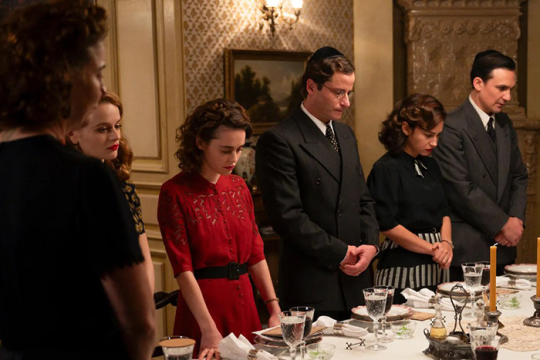
In 1980, President Jimmy Carter issued a Presidential Proclamation recognizing one week in March as National Women’s History Week. March has historically been the time for acknowledgement of women’s issues; International Women’s Day originated in the early 1900s and is observed on March 8. In the years that followed President Carter’s Proclamation, citizens and organizations lobbied to ensure continued recognition of women’s history through a designated week.
By 1986, 14 states had declared Women’s History Week, and many school districts were incorporating presentations and education into their curricula, while towns hosted parades and special programs. Ultimate success came in 1987, when, following the momentum found on the state level, Congress officially designated March as National Women’s History Month.
How do we honor the women who have paved the way for our successes, Jewishly, in our communities?
1. We remember.
Throughout Jewish history, women were leaders and instigators of change. From our foremothers to Miriam and Esther, women guided the Jewish people. Beyond the text of our Torah, we find examples of powerful Jewish women in modern society. Golda Meir was the first woman to become Prime Minister of Israel. Anne Frank showed us bravery and courage, and left a legacy. And, of course, there is Israel-American, Oscar-winning, animal rights-loving actress Natalie Portman. These women, as well as countless others, broke barriers.
We honor them by recalling their actions and values, applying them as motivation to continue moving forward. Each day of the rest of National Women’s History Month, you can use social media to share information about various empowering women who have made an impact on the world, whether they are historical figures or women in your communities today.
2. We turn to tradition.
March 28 is Rosh Chodesh Nisan. The celebration of a new month has long been regarded as a woman’s holiday because of the relationship between women and the moon.
Many women create or join Rosh Chodesh groups as an opportunity to come together in faith and spirituality. These groups can be a space for discussion, Torah study, learning about upcoming holidays, and sharing in experiences. Rosh Chodesh Nisan provides an exceptional opportunity to host a Rosh Chodesh group or program within the context of women’s history.
3. We stand in solidarity.
There is nothing more counterproductive or painful than when women put down other women. We should lift each other up and help to promote each other’s voices and narratives. How do we do this? We listen, offer support, and join together to oppose any actions that compromise a woman’s ability to succeed. We mobilize in our sisterhoods, congregations, and communities, and encourage others to join us.
After all, we only saw the establishment of National Women’s History Month because states led the way. Local actions do matter. You matter.
Related Posts

“We Were the Lucky Ones:” Bringing The Holocaust Out of History Books and Into Our Homes

Harnessing the Power of our Mothers Around the Seder Table

